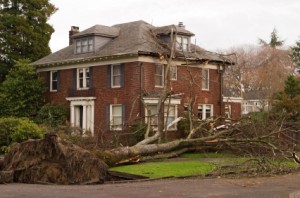Dear Liz: My home in Pacific Palisades is still standing after January’s fire, but was damaged by smoke and ash. The remediators deemed hundreds of personal property items unsalvageable. Our insurance company is paying us a highly depreciated amount for these items, with the full amount to be received upon the actual purchase of each replacement.
Since we won’t replace every item, we’ll end up with a sizable loss, which I understand can be claimed on our 2024 or 2025 tax return. I’m concerned that we won’t know the total amount of loss by the end of 2025. Could you please discuss how to handle this?
Answer: Casualty losses are deductible in the year you sustained the loss. That’s typically the year the loss occurred, although you may be able to deduct the loss in the previous tax year when it’s part of a federally declared disaster, such as the January 2025 wildfires in Los Angeles, says Mark Luscombe, principal analyst for Wolters Kluwer Tax & Accounting.
However, you aren’t considered to have sustained a loss if there remains a reasonable prospect of recovery through a claim for reimbursement, Luscombe says. You can’t take the deduction until the tax year in which you can determine with reasonable certainty whether or not you will receive such reimbursement.
If you won’t know the amount of the loss by the end of 2025 due to this uncertainty, you can wait to deduct the loss until the year in which the amount of reimbursement is known, Luscombe says.
For personal use property, the deductible loss is the lesser of the adjusted basis of the property (typically its cost) or the decrease in the fair market value of the property as a result of the casualty (which may be determined by an appraisal or the cost of repairing the property), Luscombe says.
 This week’s top story: How to overcome the challenges buying a house in 2024. In other news: How to put a ting on it and save for a house, too, what documents to protect and how if a disaster strikes, and how the Fed affected your savings account in ’23 and what’s next.
This week’s top story: How to overcome the challenges buying a house in 2024. In other news: How to put a ting on it and save for a house, too, what documents to protect and how if a disaster strikes, and how the Fed affected your savings account in ’23 and what’s next.